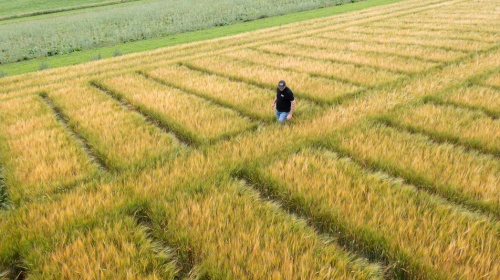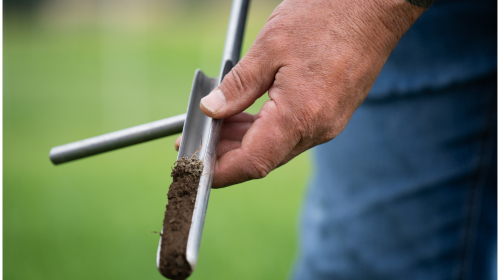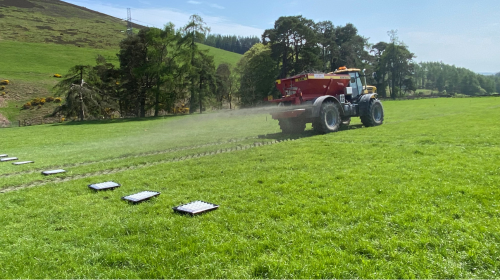Land Use for Net Zero Hub
Major research investment into
national land use transformation
Major research investment into
national land use transformation
Sustainable Soils Alliance part of transdisciplinary hub looking to bridge the gap between science and policy to achieve Net Zero.
- Sustainable Soils Alliance (SSA) is member of a winning consortium of 34 organisations awarded a £6.25 m government grant to establish a ‘Land Use for Net Zero’ (LUNZ) Hub.
- The LUNZ Hub aims to provide all four UK administrations with the rapid evidence they need to develop policies that will drive the UK land transformation required to achieve Net Zero by 2050.
- Consortium includes experts from research, farming and industry across issues including green finance, renewable energy, planning, soil health, afforestation and water management.
- The announcement comes as the LUNZ hub is launched at an event in Leicester today (16 January).
- The SSA will co-lead the Soils theme within the Hub, and examine different definitions of soil health, the variety of sampling and monitoring tools as well as critical questions around soil carbon.

A first of its kind consortium of 34 leading research and stakeholder organisations has been established to help all four UK administrations address land use and agriculture as a major greenhouse gas emitting sector.
The “Land Use for Net Zero” (LUNZ) Hub, co-led led by The James Hutton Institute and the University of Leicester, with £6.5 million funding from UK Research and Innovation, will provide UK and devolved nations timely evidence around land use, from renewable energy to soil carbon and green finance, to help drive the land transformations needed to achieve net zero by 2050.
It will also play a pivotal role in helping to communicate more widely the critical importance of land and how it’s used as a major carbon sink or source.
Agriculture and land use have a major impact on greenhouse gas (GHG) emissions, as well as a wide range of other environmental, societal and economic outcomes, but progress towards decarbonisation is lagging behind other sectors.
The declaration recently announced at COP28 on sustainable agriculture, resilient food systems and climate action states the UK government’s intent to act on land use and climate change by increasing public financial support and scaling science-based solutions, and LUNZ will be a key conduit for these actions.
Achieving the transformational change in land management needed will depend on government access to world-class research and innovation and a novel approach to collaboration across a variety of critical stakeholders.

Hub co-lead of the winning Consortium, Professor Lee-Ann Sutherland (The James Hutton Institute), explained:
“The science behind land use is highly complex. It is influenced by a range of economic, social and environmental factors, and complicated further by a changing evidence base, novel market forces, the emergence of new data and models, and disruptive technologies such as artificial intelligence. Our aim is to bridge the gap between researchers and policy makers and our work will be focused on meeting specific policy-maker needs, giving them the evidence they need in the format and timeframe they need it.
“Our Consortium has developed a series of innovative mechanisms to do just that – an Agile Policy Centre, Net Zero Futures Platform, and Creative Methods Lab – each tailored to generate clear, robust answers to urgent questions.”
Equally novel is the approach to stakeholder participation in the Hub, as Hub Co-lead, Professor Heiko Balzter (University of Leicester), explained:
“Creating a fair, realistic path to Net Zero in the land use sector can only be achieved with the involvement of a wide range of stakeholders throughout the process– to provide their expertise, share the Hub’s outputs and ensure its proposals work in practice as well as theory.
“Our consortium reflects this – ranging from those at the cutting edge of climate change modelling to farmers groups, advisory organisations, non-governmental organisations and an arts collective. Their range and profile will ensure the Hub’s impact extends throughout society – so everyone can engage in land use transformation – from the food they buy to their holiday, housing and investment decisions.”

At the heart of the challenge is understanding how transformative change can be achieved and predicting the impact of proposed approaches against multiple environmental, societal and economic outcomes. A central strand of the Hub’s approach will be the development of plausible and innovative net zero scenarios and associated pathways – novel tools based on advanced modelling methodologies that can predict the impacts of different policy interventions across a variety of metrics.
The SSA is co-lead on soil (one of the Hub’s three research themes) alongside Professor Pete Smith from Aberdeen University. SSA Co-Director, Ellen Fay said:
“We’re looking forward to working with experts from across the four nations to help identify and promote the most valuable, up-to-date research and see it is reflected in government policies.
“We’ll be looking into on how we define healthy soils and examining different approaches to soil sampling metrics and tools - which are proliferating as soil health becomes a priority for farmers, businesses and government”
SSA Co-Director, Matthew Orman said:
“Soil health runs through much of the Hub’s work, from the potential role of carbon sequestration in a net-zero to the future of food security under alternative climate scenarios. The Hub will shine a light on the best available research, whether generated by the country’s leading institutes or by farmers or land managers in field.
“The work will have vital implications beyond just policy, including the evolution of ecosystem markets and the uptake of regenerative agriculture – and we hope it will engage the whole community of stakeholders involved in the Net Zero transition of land use.”
Further notes
Further notes
- The 'net zero target' refers to a UK government commitment to ensure the UK reduces its greenhouse gas emissions by 100% from 1990 levels by 2050. If met, this would mean the amount of greenhouse gas emissions produced by the UK would be equal to or less than the emissions removed by the UK from the environment. (House of Lords Library)
- The LUNZ Hub is part of the overall ‘Transforming land use for net zero, nature and people (LUNZ)’ Programme which aims to mobilise and support research that works in partnership with all the administrations of the UK, and industry, to tackle net zero through action in the UK land sector.
- Alongside the Hub, the LUNZ programme will fund research that feeds directly into policy and decision-making in three interlinked themes: soil health, agricultural systems and land use change.
- The Hub is co-funded by UKRI, the Department for the Environment, Food and Rural Affairs (on behalf of England and Wales), the Department for Energy Security and Net Zero, the Department for Science, Innovation and Technology, and the Scottish Government. It has been co-designed with Defra and the Welsh and Scottish governments.
- The LUNZ Hub is funded for 40 months, starting 1 November 2023.
For further inquiries, or to organise an interview with one of the HUB members contact LUNZ head of communications Matthew Orman (